Water and waste
Don’t flush it! Your toilet is not a bin
Only the 3Ps should be flushed down the toilet – that’s poo, pee and (toilet) paper*.
Every year, hundreds of sewer blockages are caused by flushing non-flushable items down the toilet, costing tens of thousands of dollars to remove. Blockages cause sewer spills, which are disruptive to the community and harmful to the environment.
You can help to keep the sewerage system and our environment clean by putting a rubbish bin next to your toilet for anything that shouldn’t be flushed.
*Or wipes that comply with the Flushable Products Standard (AS/NZS 5328:2022)
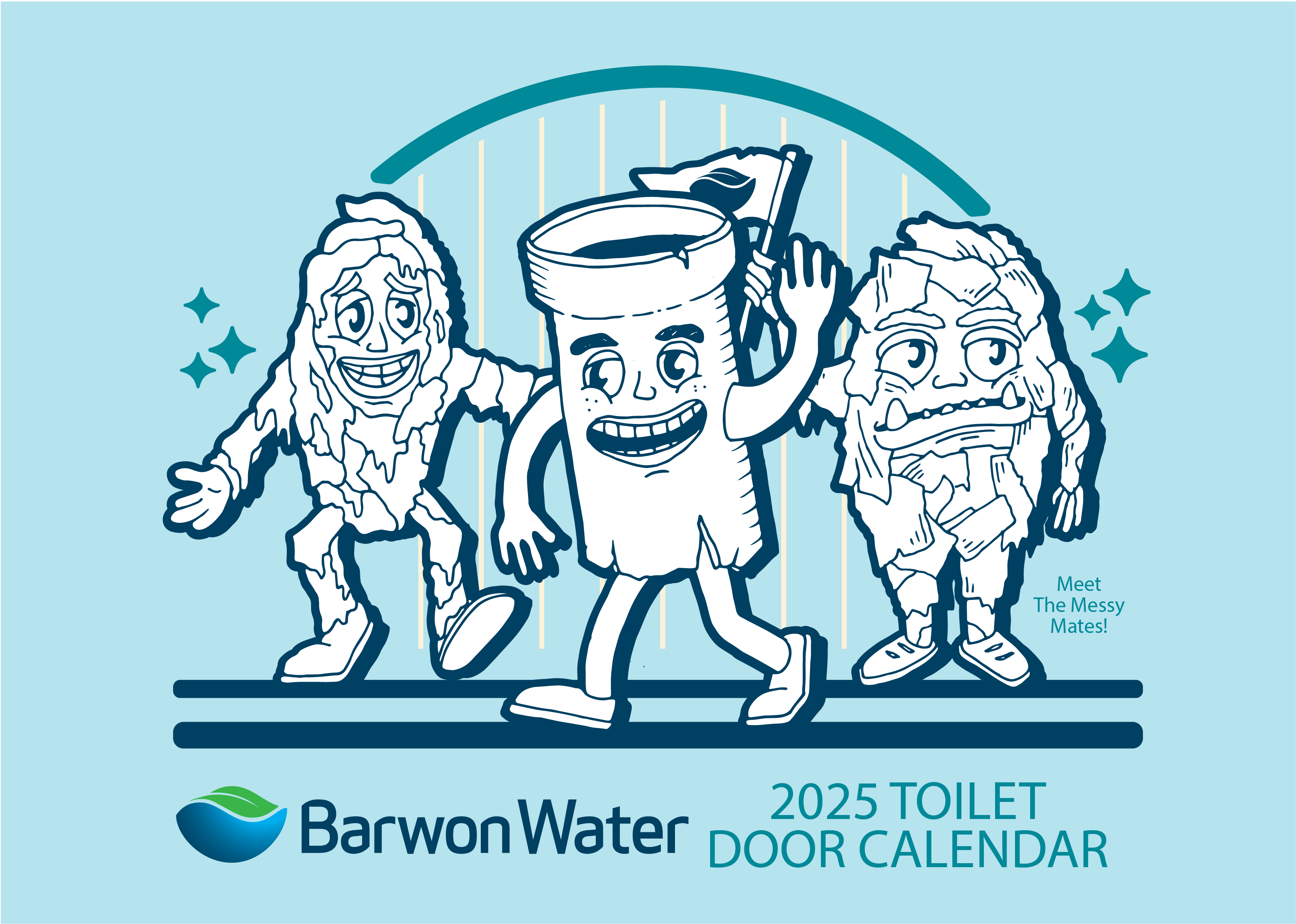
Toilet Door Calendar Competition!
Do you have any top tips for disposing of fats and oils in the kitchen? Share your best photo or video with us, and we’ll send you our highly anticipated back-of-the-toilet-door calendar, packed with fun games to keep you entertained!
Tag us in your post, DM us on socials, or get in touch by emailing us at education@barwonwater.vic.gov.au.
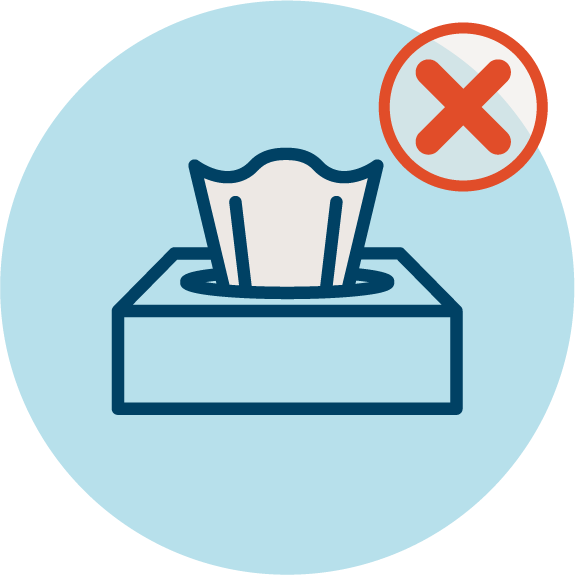
Tissues
When you think about it, tissues are designed to keep their shape, even when wet.
Can you imagine if you were wiping your tears, or blowing your nose, and they started to fall apart on your face? Not very useful. It’s for this reason they should not be flushed down the toilet. Put them in the bin instead.
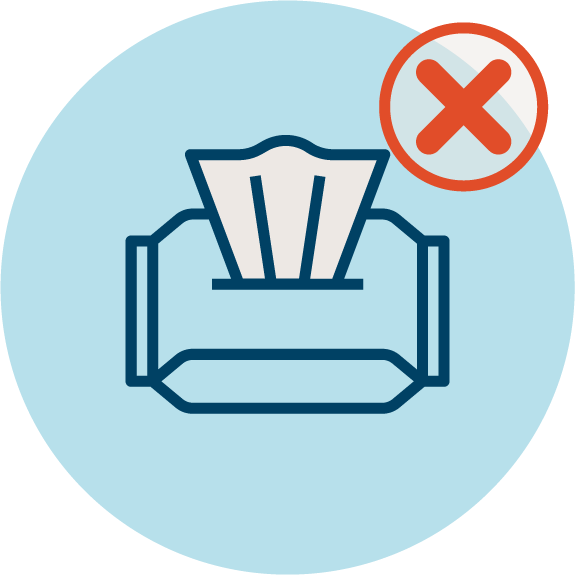
Wipes
Non-flushable wipes make up most of the rubbish items we find in sewer blockages.
A new standard (AS/NZS 5328, Flushable Products) has been introduced for testing and labelling ‘flushable’ products but be aware that some products may carry a similar looking symbol and not meet the standard. If you choose to use wipes, ensure they mention the standard on the packaging.
Oh and “biodegradable” isn’t the same as meeting the standard.
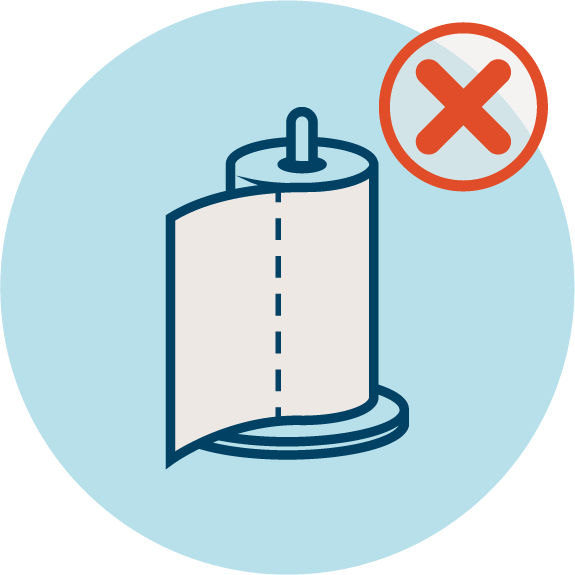
Paper towel
Like tissues, they’re designed to remain strong when wet and wouldn’t be very useful if they fell apart when you’re trying to wipe up a mess. Because they are so durable, you should put them in the bin, not the sewerage system.
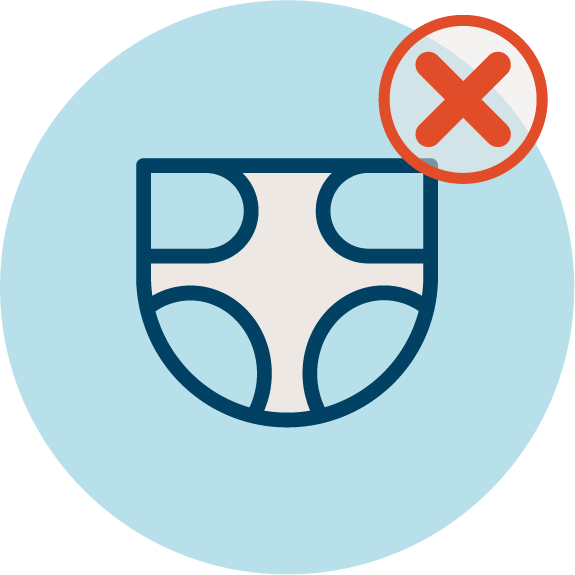
Pads, tampons and nappies
While it might be convenient, pads, tampons and nappies are super absorbent and should not be flushed down the toilet. If you’re out and about, be sure to place them in the bin provided, otherwise put them in your bin at home. Better yet, try a reusable option!
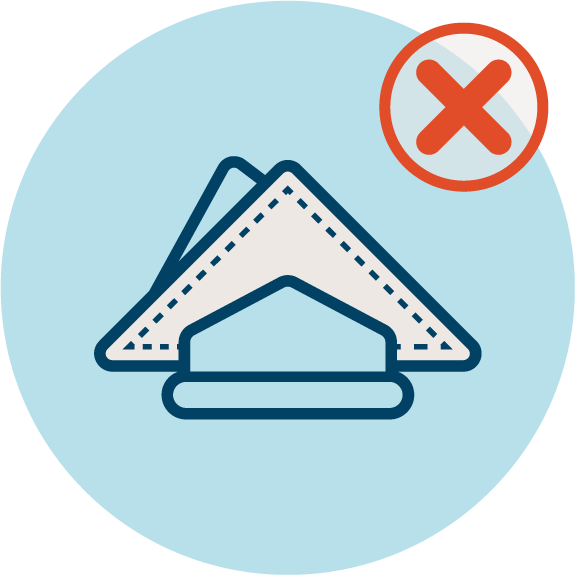
Serviettes/napkins
Have you run out of loo paper? While serviettes or paper napkins might seem like a good alternative, don’t be tempted to flush them. Like tissues and paper towels, serviettes are heavy duty mess busters and won’t break down in the sewerage system like toilet paper. Bin them instead.
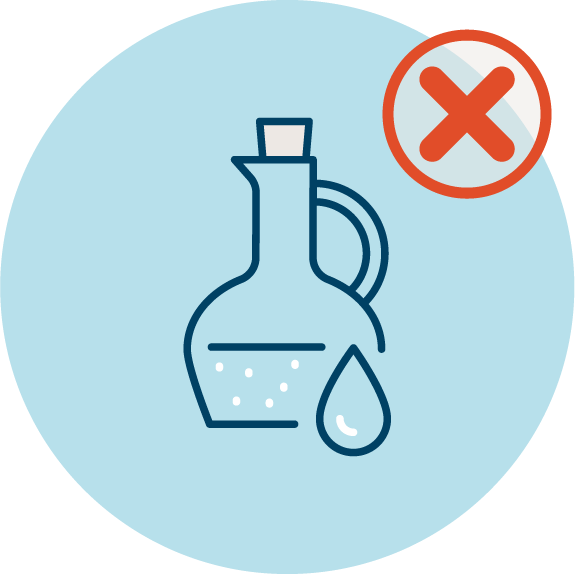
Fats, oils and paint
Things that go down your kitchen sink also end up as wastewater in the sewerage system.
Avoid washing cooking oils and fats down the sink. Fats solidify when they cool and are a common cause of sewer blockages.
Try tipping your fats/oils into a container lined with foil, then wait for it to cool and simply place it in the bin.
To reduce the environmental impact of art materials, avoid pouring paint down drains. Wipe excess paint from brushes, palettes, and tools onto old newspaper, a rag, or paper towel before rinsing.
Reduce acrylic paint waste by mixing only what you need. Reuse palettes and keep brushes moist between sessions. Opt for eco-friendly, non-toxic, and low-VOC acrylic paints.
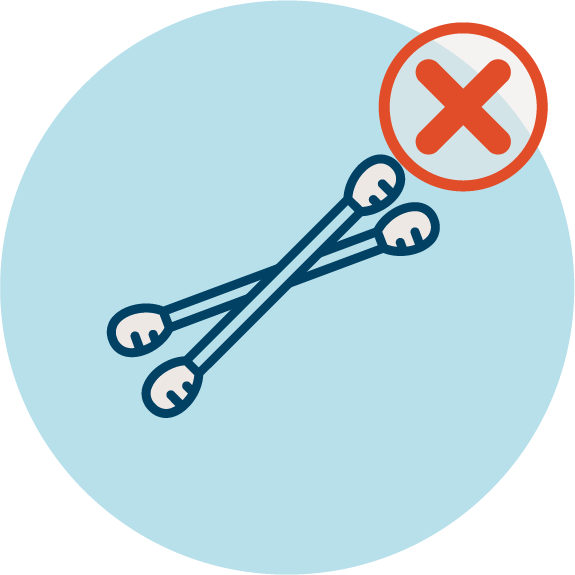
Everything else
At the end of the day, it’s all rubbish and should not be flushed down the toilet. Things like cotton buds, condoms and band-aids are also common items found in sewer blockages and belong in the bin.
Other items that are harmful to our sewerage systems and public health include pet poo, paints, pesticides, hazardous chemicals and medicines. Check in with your local council for options to safely dispose of these items.
Sewerage systems and public health
Sewerage systems are important for the environment’s health and our health. That’s why it’s important to keep our sewers healthy.
It is estimated that sewerage systems have saved as many lives as vaccinations. Geelong’s sewerage system started operating in 1916 and potentially fatal diseases like diphtheria and typhoid became less and less common.
Life without sewerage systems…
Our friends at Wannon Water have put together this handy video to give you a glimpse of what life without a sewerage system might look like, check it out here: tinyurl.com/275d8c9p.
If we didn’t have sewerage systems, the average Australian family would need to dispose of 30 big brown bins per week! Can you imagine wheeling those out to your nature strip on bin day?